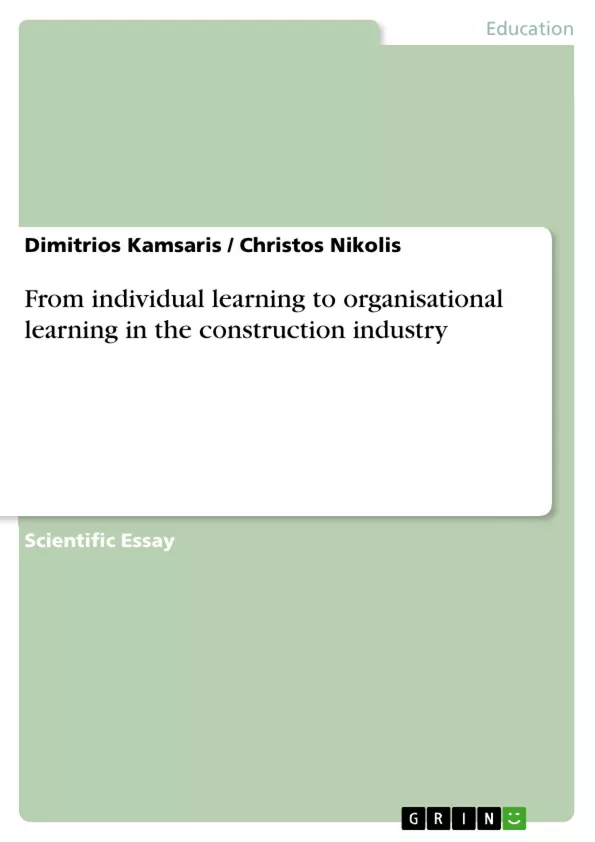This paper examines the Human Resource Management theory and its application in meeting the future trends and challenges in the management of human resources in the construction industry.
The complexity of the construction industry affects consistently the internal and external environment of organisations enhancing them to struggle to become adaptable and efficient for absorbing new organisational knowledge. A research was undertaken in the construction industry. The primary data were collected through interviews and overt, non-participant observation. Eighteen top managers and supervisors, all engineers, participated in the interview sessions.
Inhaltsverzeichnis (Table of Contents)
- Introduction
- Literature Review
- Organisational Learning
- The Factors of Successful Organisational Learning
Zielsetzung und Themenschwerpunkte (Objectives and Key Themes)
This paper examines the application of Human Resource Management theory in addressing the challenges and trends in the construction industry. The research explores the impact of individual and organizational learning on the overall success of construction companies in the Greek context.
- The role of Human Resource Management in addressing industry trends
- The importance of organizational learning for company success
- The relationship between individual learning and organizational learning
- Factors contributing to successful organizational learning
- The impact of learning on company performance
Zusammenfassung der Kapitel (Chapter Summaries)
- Introduction: This chapter sets the stage for the research by introducing the topic of organizational learning in the construction industry and outlining the research questions.
- Literature Review: This chapter provides a comprehensive review of the literature on Human Resource Management and organizational learning. It explores the various trends that impact human resource management, highlighting the importance of employee development, skill enhancement, and teamwork.
- Organisational Learning: This chapter delves into the concept of organizational learning, exploring its significance for company survival and performance. The chapter discusses the distinction between individual and organizational learning, emphasizing the importance of knowledge acquisition and information exchange.
- The Factors of Successful Organisational Learning: This chapter examines the key factors that contribute to successful organizational learning, including personal mastery, mental models, shared vision, systemic thinking, and team learning. The chapter provides specific examples and recommendations for how to foster these factors within organizations.
Schlüsselwörter (Keywords)
The primary keywords and focus topics of the text include: organizational learning, individual learning, team learning, construction industry, human resource management, knowledge acquisition, employee development, performance improvement, competitive advantage, industry trends.
- Citar trabajo
- Professor Dimitrios Kamsaris (Autor), M.Sc. Christos Nikolis (Autor), 2009, From individual learning to organisational learning in the construction industry, Múnich, GRIN Verlag, https://www.grin.com/document/181597



